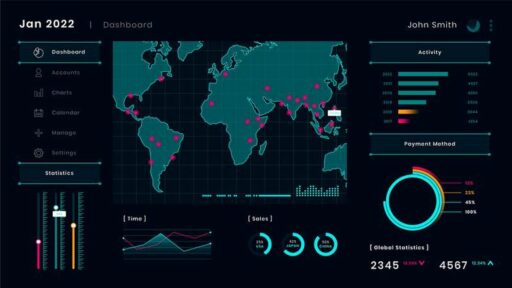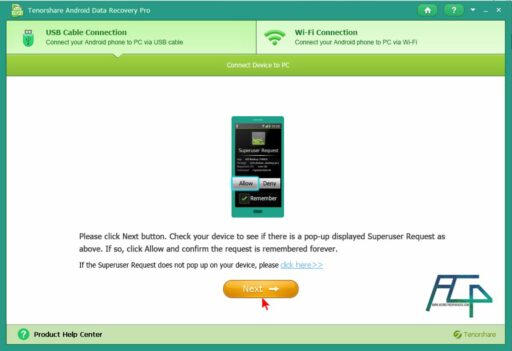Table of Contents
The advent of technology has paved the way for various remote work opportunities, among which data entry jobs have emerged as a popular option for those seeking flexible work arrangements from the comfort of their homes. This guide aims to explore the realm of data entry work from home, providing insights on how to get started, maximize earnings, maintain productivity, and navigate the evolving landscape of the data entry industry.
Key Takeaways
- Remote data entry jobs offer the chance to work from home with flexible hours, and are accessible to individuals even without prior experience.
- Identifying legitimate work-from-home data entry opportunities is crucial to avoid scams and ensure a secure work environment.
- Essential skills for data entry roles include fast and accurate typing, attention to detail, and proficiency with relevant software tools.
- The income potential in data entry varies, with opportunities for growth through increased speed, accuracy, and additional training.
- Creating a dedicated home office space and managing time effectively are key to maintaining productivity and work-life balance in remote data entry positions.
Exploring the Landscape of Remote Data Entry Jobs


Understanding the Role of a Data Entry Clerk
A Data Entry Clerk plays a crucial role in the digital management of information, often acting as the bridge between raw data and a usable database. Their primary responsibility is to input data accurately and efficiently into computer systems. This task may involve transcribing information from paper formats, entering data from audio files, or updating existing records. The nature of the data can vary widely, from customer information and invoices to medical records and inventory lists.
Data Entry Clerks must be meticulous and detail-oriented, ensuring the integrity of the data they handle.
While the job may seem straightforward, it requires a keen eye for detail and a solid understanding of the specific data management system in use. The role may also include verifying and editing data as needed, maintaining logs of activities and completed work, and troubleshooting any discrepancies that arise.
- Receive and process data from various sources
- Ensure accurate data entry and comparison
- Update and maintain databases
- Generate reports and perform backups
The job titles related to data entry can vary, but they all share the common goal of maintaining accurate and up-to-date information within an organization’s systems.
Identifying Legitimate Work-from-Home Opportunities
With the rise of remote work, distinguishing between legitimate and fraudulent data entry jobs has become crucial. Always verify the credibility of a company before applying. Look for clear job descriptions, realistic salary offers, and genuine reviews. Be wary of positions that require payment for training or job placement.
- Research the company’s digital presence and history.
- Check for online reviews and testimonials.
- Confirm the job offer’s details with a representative if possible.
- Avoid offers that seem too good to be true.
It’s essential to approach work-from-home opportunities with a critical eye and due diligence to ensure a secure and rewarding experience.
Remember, legitimate jobs will never ask for personal financial information upfront or charge fees for job applications or training. By following these guidelines, you can navigate the remote job market with confidence and secure a genuine data entry position.
Evaluating the Benefits of Remote Data Entry Positions
The allure of remote data entry jobs lies not only in the ability to work from anywhere but also in the numerous advantages they offer. Remote positions often provide a level of flexibility unmatched by traditional office jobs, allowing individuals to tailor their work schedules to fit personal commitments and preferences.
Benefits of remote data entry work include:
- Increased autonomy and control over your work environment
- Elimination of daily commutes, saving time and reducing stress
- Potential for a better work-life balance
- Access to a broader range of job opportunities regardless of geographic location
Embracing remote data entry roles can lead to significant savings in both time and money, as well as an enhanced sense of job satisfaction due to the autonomy they provide.
Moreover, the remote data entry field is ripe with opportunities for those seeking part-time or full-time engagements. Whether you’re looking to supplement your income or dive into a full-time career, the data entry industry offers a variety of positions to suit different needs and skill levels.
Getting Started with Data Entry Work from Home


Preparing Your Application for Data Entry Roles
When preparing your application for data entry roles, it’s crucial to highlight your attention to detail and proficiency with various data management systems. Ensure your resume reflects any relevant experience, whether from previous data entry jobs or positions that required meticulous record-keeping and data analysis.
- Tailor your resume to showcase skills pertinent to a data entry clerk, such as fast typing speed, familiarity with spreadsheets, and data verification abilities.
- Include any certifications or courses that demonstrate your commitment to accuracy and efficiency in data handling.
- Mention specific software proficiency, especially if you have experience with industry-standard data management tools.
Remember, your application is the first impression potential employers will have of your capabilities. Make it count by meticulously proofreading for errors and ensuring that all information is current and relevant.
As the data entry field encompasses a variety of positions, consider the list below to identify roles that align with your skills and career aspirations:
- Data Entry Operator
- Data Entry Specialist
- Data Clerk
- Document Clerk
- Data Entry Technician
Each role may have different requirements, so it’s important to understand the nuances of the position you’re applying for. This will allow you to tailor your application to meet the specific needs of the job, increasing your chances of success.
Essential Skills and Tools for Success
To excel in remote data entry work, certain skills and tools are indispensable. Proficiency in typing is a given, but beyond that, a data entry clerk must have a keen eye for detail to ensure data accuracy. Familiarity with data entry software, such as Microsoft Excel or Google Sheets, is also crucial. Moreover, the ability to understand and organize information quickly can significantly boost efficiency.
In addition to these skills, having the right tools can make a world of difference. A reliable computer, a high-speed internet connection, and a comfortable workspace are the basics. However, investing in a quality keyboard and perhaps dual monitors can lead to a more productive workflow. Here’s a quick list of essentials:
- High-speed Internet
- Ergonomic chair and desk
- Quality keyboard
- Dual monitors (optional but beneficial)
- Noise-cancelling headphones (for focus)
While the technical skills can be learned and improved upon, soft skills such as effective communication and time management are equally important. These competencies enable remote data entry clerks to work independently and coordinate with teams when necessary.
Understanding the role of a data entry clerk involves recognizing the blend of technical know-how and soft skills required. Identifying legitimate work-from-home opportunities often means looking for roles that value and foster these skills. As you prepare your application, remember to highlight your proficiency in relevant software and your readiness to adapt to the evolving demands of data entry tasks.
Navigating Part-Time and Full-Time Options
Choosing between part-time and full-time data entry work from home can significantly impact your lifestyle and income. Full-time positions often come with the stability of regular hours and potential benefits, while part-time roles offer more flexibility but may lack certain job securities.
- Full-Time Options:
- Regular hours and potential for benefits
- Greater income stability
- Opportunities for career advancement
- Part-Time Options:
- Flexible scheduling
- Possibility to combine with other commitments
- Less job security and benefits
When considering part-time versus full-time remote data entry work, assess your personal needs, financial goals, and the level of flexibility you require. Remember that some companies offer the chance to transition from part-time to full-time as you grow within the role, providing a path for career development while initially offering the flexibility you need.
Maximizing Earnings and Growth in Data Entry


Strategies for Increasing Typing Speed and Accuracy
Improving typing speed and accuracy is crucial for a data entry clerk’s productivity and overall performance. Regular practice and the use of typing software can significantly enhance these skills.
- Start with touch typing tutorials to build a strong foundation.
- Gradually increase the difficulty and length of the texts you practice with.
- Use typing games and timed exercises to make practice enjoyable and challenging.
- Regularly test your speed and accuracy to track your progress.
Consistency is key in mastering typing skills. Dedicate specific times for practice each day, and you’ll notice improvement over time.
Remember, accuracy is just as important as speed. It’s better to type correctly at a moderate pace than to make numerous errors at a high speed. As you become more accurate, your speed will naturally increase.
Advancing Your Career as a Remote Data Entry Specialist
As a remote data entry specialist, the path to career advancement may not always be clear-cut, but with strategic planning and goal setting, you can reach new milestones and grow professionally. Begin by identifying your career aspirations and the skills required to achieve them.
- Set specific, measurable, achievable, relevant, and time-bound (SMART) goals.
- Seek feedback and mentorship from industry professionals.
- Continuously improve your typing speed and accuracy.
- Stay updated with the latest data entry software and technologies.
Embrace the flexibility of remote work to balance professional development with personal responsibilities.
Remember, part-time positions can also offer valuable experience and opportunities for growth. By taking on diverse projects and demonstrating your value, you can position yourself for full-time roles or higher responsibilities within the field.
Exploring the Pay Scale and Income Potential
The financial prospects of remote data entry jobs can vary widely based on experience, location, and the employer. The median income for data entry positions is just over $49,000, reflecting a range that can start from hourly wages to salaried roles with performance-based bonuses. Entry-level positions may offer around $14 to $17 per hour, with the potential for increases as skills and experience grow.
Salaries can be negotiable, often falling between $58,000 to $70,000 for more skilled positions, inclusive of extensive employee benefits. It’s important to note that these figures are subject to change and can be influenced by market demand and the evolving landscape of remote work.
While the average salary for a Data Entry Work From Home role in the United States is reported at $38,159 per year, individual earnings can differ significantly. This underscores the importance of negotiating salaries and understanding the full compensation package, including any additional benefits or opportunities for advancement.
Balancing Flexibility and Productivity in a Remote Setting


Creating an Effective Home Office Environment
To thrive in a remote data entry job, setting up an effective home office is crucial. A designated workspace is key to productivity and minimizing distractions. According to a FinanceBuzz survey, about 90% of remote workers consider this an important aspect of their work environment.
Gear can make or break your home office setup. It’s not just about having a desk and a chair, but also about choosing the right tools that enhance efficiency and connectivity. Tools like Slack, Zoom, and Asana are essential for task management and team communication, while a reliable internet connection is non-negotiable.
Here’s a quick checklist to ensure your home office meets your needs:
- Comfortable and ergonomic chair
- Desk with adequate space
- High-quality monitor(s)
- Keyboard and mouse suited to long hours of use
- Noise-cancelling headphones
- Adequate lighting
- Organizational tools like file cabinets or desk organizers
Remember, the flexibility of working from home comes with the responsibility of creating a space that supports your work-life balance and productivity.
Managing Time and Distractions When Working from Home
Working from home offers unparalleled flexibility, but it also requires a high degree of self-discipline to manage time effectively and minimize distractions. Creating a structured daily routine is crucial for maintaining productivity. Start by designating specific work hours and stick to them as if you were in an office setting.
To ensure you stay on track, plan your tasks in advance and prioritize them based on urgency and importance. This approach not only streamlines your workflow but also provides a clear roadmap for your day.
Breaks are essential for maintaining focus over long periods, but they must be strategic. Schedule short breaks to recharge, and avoid the temptation to engage in non-work-related activities during these times. Monitoring your work habits can help identify patterns of productivity and times when distractions are most prevalent.
Lastly, remember that while the absence of a commute and the ability to work in a comfortable environment are significant benefits, they can also lead to overworking. Establish clear boundaries between work and leisure to maintain a healthy work-life balance.
Maintaining Work-Life Balance as a Remote Employee
Achieving a healthy work-life balance is crucial for remote data entry employees. The flexibility of remote work is a double-edged sword; it offers the freedom to set your own hours, but it can also blur the lines between work and personal life. To maintain balance, it’s important to establish clear boundaries and adhere to a structured routine.
A designated workspace is key to minimizing distractions and separating work from leisure. About 90% of remote workers recognize its importance, suggesting that a well-defined work area can significantly enhance productivity and help delineate ‘office’ hours from personal time.
Here are some common challenges remote workers face, along with the percentage of people affected:
- Difficulty building relationships with co-workers (49%)
- Feelings of isolation (46%)
- Difficulty separating work from personal life (38%)
To combat these challenges, utilize tools like Slack, Zoom, and Asana for task management and team communication. Remember, a solid internet connection is a non-negotiable asset for remote work. Lastly, resist the temptation to extend work hours into your leisure time; discipline is key to preserving your well-being and ensuring long-term success in a remote setting.
Navigating the Future of Remote Data Entry Work


Trends and Predictions for the Data Entry Industry
The data entry industry is evolving rapidly, with new technologies and work models reshaping the landscape. Remote data entry jobs are becoming increasingly prevalent, offering flexibility and the opportunity to work from anywhere. This shift is largely driven by advancements in cloud-based platforms and software that facilitate remote work.
- The rise of AI and automation may change the nature of data entry tasks.
- Demand for data specialists with knowledge in database management systems, like Azure Data Studio, is expected to grow.
- The gig economy and freelance platforms are expanding the availability of short-term data entry contracts.
The future of data entry work is likely to be characterized by a blend of technology and human expertise, with a focus on data quality and security.
As we look ahead, it’s clear that those who adapt to new tools and trends will have a competitive edge. Continuous learning and skill development will be crucial for anyone looking to thrive in this field.
Continuing Education and Skill Development
In the dynamic field of remote data entry, continual learning is essential for staying competitive. As the industry evolves, so must your skills and knowledge. Engaging in ongoing education ensures you remain a valuable asset to employers and clients alike.
- Online courses and webinars
- Certification programs
- Industry-specific workshops
- Networking events
By dedicating time to education and skill development, you position yourself for advancement and open doors to higher-paying opportunities.
The landscape of remote data entry is ever-changing, with new software and data management tools emerging regularly. A commitment to skill enhancement can lead to mastery of these tools, making you more efficient and effective in your role.
Building a Sustainable Career in Remote Data Entry
Building a sustainable career in remote data entry requires a strategic approach to skill development and job selection. Cultivating a diverse skill set is crucial for staying competitive in the evolving job market. This includes mastering data entry software, understanding basic data analysis, and developing effective communication skills.
- Stay updated with industry trends and software updates.
- Seek feedback and continuously improve your accuracy and speed.
- Network with other professionals and join online communities.
- Consider certifications or courses to enhance your expertise.
A sustainable career in data entry is not just about typing speed; it’s about adapting to new tools, understanding data privacy, and delivering quality work consistently.
Finally, be selective with the projects you take on. Aim for roles that offer growth potential and align with your long-term career goals. By doing so, you’ll not only increase your job satisfaction but also ensure a steady progression in your remote data entry career.
Conclusion
As we’ve explored throughout this guide, the world of data entry work from home opportunities is rich with potential for those seeking flexibility and the comfort of working from their own space. Companies like Tektalent Inc., The Job Link, and Certified Mobile Notary Service are just a few examples of employers offering remote data entry positions that promise not only competitive pay but also the chance for growth and skill development. Whether you’re looking for part-time, full-time, or temporary roles, there is a diverse range of options to suit various lifestyles and career goals. Embracing the remote data entry path can lead to financial freedom, a balanced work-life dynamic, and the chance to be part of the evolving digital workforce. With the right approach and dedication, anyone can unlock the door to a successful and satisfying career in data entry from the comfort of their home.
Frequently Asked Questions
What does a remote data entry clerk do?
A remote data entry clerk inputs and updates information into a database or documentation platform. They ensure accuracy and may perform quality checks, often working from home with flexible hours.
Are there any part-time data entry jobs available?
Yes, there are part-time data entry jobs available that offer flexibility in terms of hours and can be a great way to supplement your income.
Do I need experience to apply for a work-from-home data entry job?
Many remote data entry jobs do not require previous experience, making them accessible for individuals looking to enter this field.
What kind of pay can I expect from a data entry job?
Pay for data entry jobs can vary, with estimates ranging from $30k to $37k yearly, depending on the company, the complexity of the work, and your experience level.
Can I work as a data entry clerk if I have another full-time job?
Yes, data entry positions are often flexible and can be done part-time, making them suitable for individuals looking to earn extra income alongside another full-time job.
How can I find legitimate work-from-home data entry jobs?
Legitimate work-from-home data entry jobs can be found on reputable job boards, company websites, and through platforms that specialize in remote and flexible job listings.





